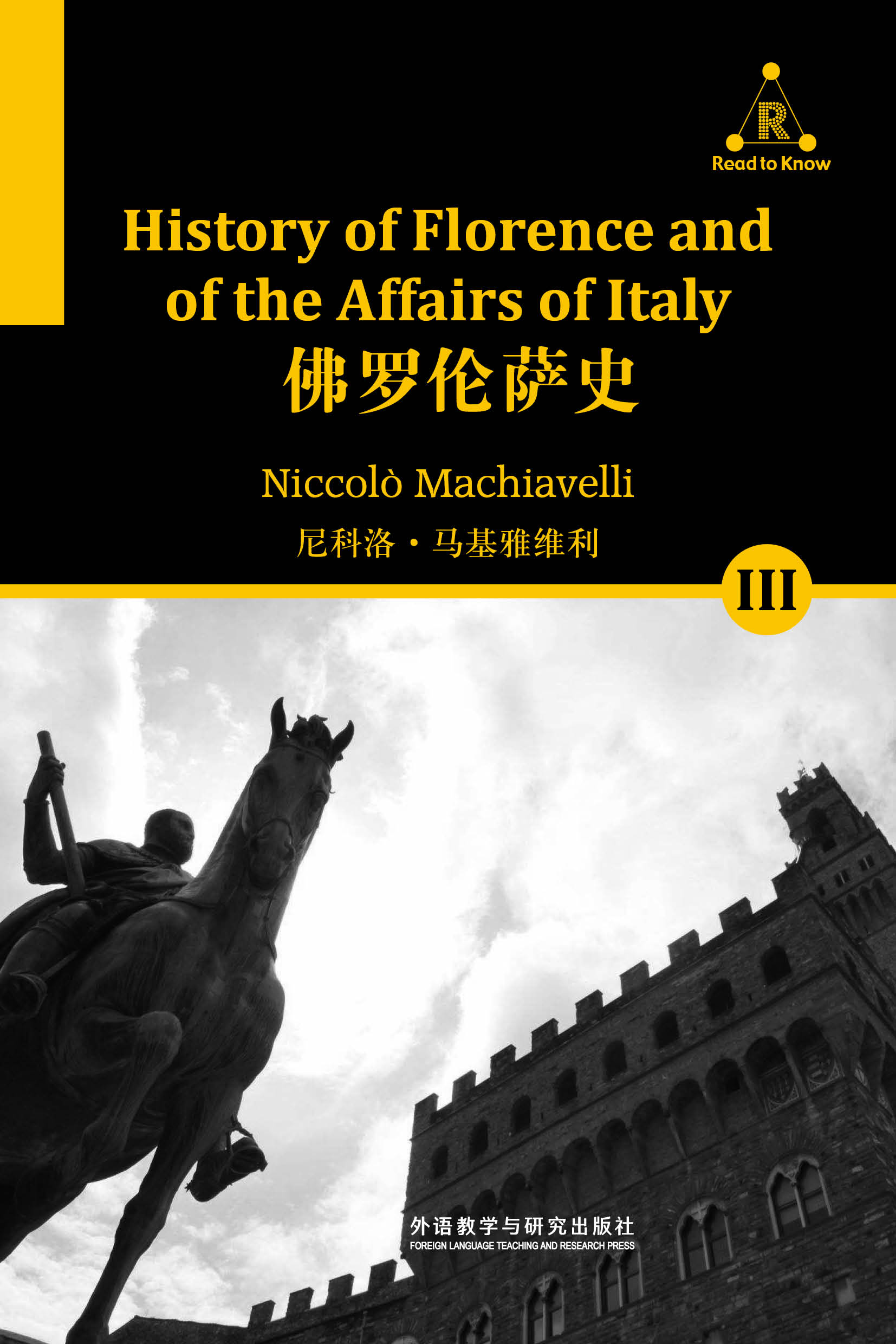贤明的科斯莫•美第奇在当时的共和体制下,掌握着事实上的权力,成为佛罗伦萨的“隐形君主”。
本书是文艺复兴时期意大利资产阶级政治思想家马基雅维利的主要人文主义历史学著作之一。从第三卷开始进入书的主体,一直写到1492年豪华者洛伦佐之死为止,以六卷的篇幅,记一百四十年之事,可以说是相当详细的。马基雅维利十分注重人性和人的心理在历史上的作用,他对许多历史人物的品质和行为进行了剖析,强调伟人君主的活动对历史的决定作用。
This less-famous work of Machiavelli depicts a medieval Florence, a city garnished with both classical vestiges and Renaissance innovations, a city identified with arts and wealth, a city known for a family -- the Medici family. While the book covered the history of Florence from its very Roman beginning, the main discussion begins with the year 1215, when the Guelphs and the Ghibellines went to war (Interestingly, 1215 was also the year when the celebrated Magna Carta was signed), and ended in the year 1492, when Lorenzo de'Medici, then Lord of Florence, died (Interestingly, this event which Machiavelli considered the beginning of the downfall of Florence, happened in the year when Christopher Columbus discovered the Americas)Machiavelli is undoubtedly known for his masterpiece, the Prince, which makes it hard for people to look at this book without thinking about the other. The fact is that Machiavelli not only expressed much of the same idea in this book, he also used extensive historical figures and events as powerful references to his theories. For instance, the aforementioned Lorenzo de'Medici was, to Machiavelli, an almost perfect example of an ideal politician.
- BOOK III
- 书评 写书评
- 笔记
-
书评加载中...




201712180302234201290.jpg)








 京公网安备 11010802032529号
京公网安备 11010802032529号
笔记加载中...